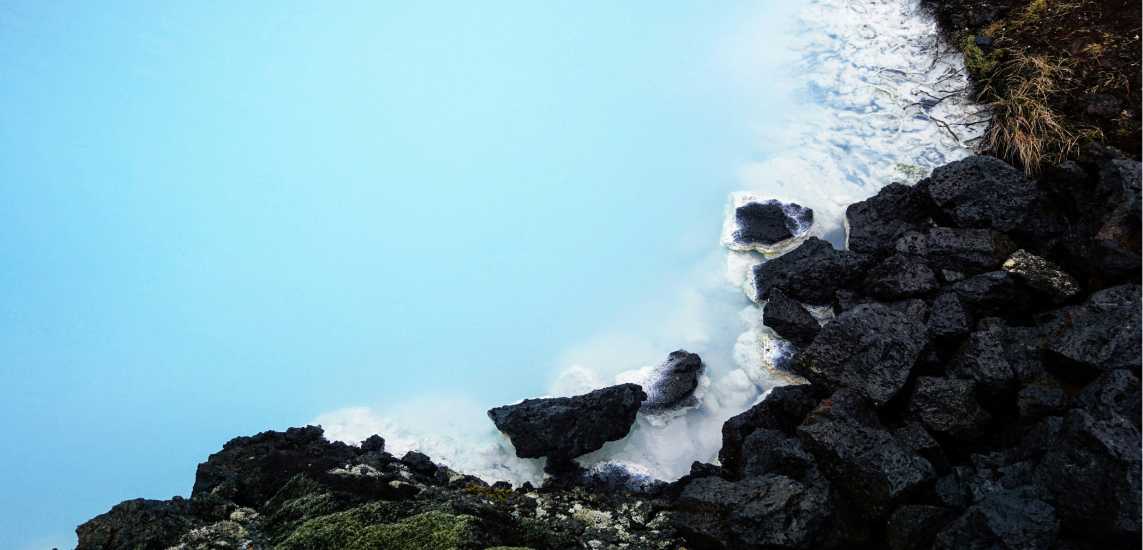Vigilance in recovery is to be on guard. However, it is not to be on guard out of fear or lack of knowledge. If we did not know our enemies or how they attacked, there would likely be cause for fear. But we know our enemies are alcohol, drugs, and other forms of addiction or dis-ease. We know they attack through cravings, wrong thinking, manipulation of memories and feelings, and similar methods.
Vigilance in recovery is to be on guard so we never again need to meet, battle, or be defeated by our enemies. It is to keep addictions and negative behaviors in the past by fully inhabiting the present moment. It is to create a future of fearlessness through the practice of principles that lift us above our enemies and their attempts to hinder recovery.
In another article, Brian Hyman explains the role and importance of honesty in recovery from addictions.
The Relevance Of Vigilance
Vigilance is comprehensive, natural, and relevant to all areas of life. It is something all people practice when safety or health are threatened. For example, when an intense weather storm approaches a particular city, townspeople will turn their attention to media outlets; watch and listen to weather reports; acquire information about the storm; and learn how to overcome challenges that intense weather brings. Or, if a group of people are recent cancer survivors and need to be tested twice a year to determine if they are without malignant cancer cells, they will visit the doctor or laboratory; verify their remission status; and follow medical orders to remain cancer-free.
Vigilance is practiced in all areas of life so we can survive. We practice vigilance in recovery so we can survive – and thrive. We practice vigilance in recovery so that judgment and dread will not be able to commandeer our thoughts or actions. We practice vigilance in recovery so that dignity will underlie our decision-making processes and courage will determine the quality of our lives. We practice vigilance in recovery to cultivate right knowledge; to know where we stand emotionally, mentally, physically, and spiritually; to recognize what we are here to do and embody who we are here to be. We practice vigilance in recovery to be able to see oncoming problems and respond proactively and positively rather than react passively and negatively.
The Motivation Of Vigilance
I will share a story I overheard in my early sobriety that illustrates how vigilance supports recovery:
A sober woman sat alone in the first class section of an airplane. The flight attendant offered her a complimentary alcoholic beverage. The sober woman looked around. She realized that nobody would know if she accepted the drink. She realized that nobody from her hometown or recovery support group would know if she relapsed. She began to romanticize the notion that it would be fun and glamorous to have a cocktail on the plane, in secret, and never tell anyone else about it.
Then she recalled the misery and torment of her old drinking life compared to the joy and serenity of her new life in recovery. And she was able to graciously thank the flight attendant for the offer, and request a cup of water instead.
Vigilance motivates us to do the right thing when we feel torn, tired, or weak. It is how we apply dedication to recovery. It the last line of defense when thoughts to yield to addiction return to the mind.
Vigilance renders temptations ineffective. It safeguards recovery against inner lapses of judgment; conquers external stimuli that can sway perception; replaces negative thinking with universal or spiritual principles. It fortifies our conscience and commitment to morality which moves us forward in recovery rather than backward toward addiction. It confronts and eradicates things in our lives that threaten happiness, joy, peace, and calm. It establishes recovery as genuine and embodied rather than theoretical and transient.
Vigilance allows us to attain the gifts of recovery – freedom, peace, joy, calm, love, friendship, and more. It allows us to rise above smallness or mediocrity to be our best. It helps us to trust the progression of recovery so we can use our experiences to help others. It gives us an understanding of the framework of recovery so we can create and maintain a life of meaning and purpose.
In Brian Hyman’s 30-day course “Recovery: Principles For A Purposeful Life”, you will acquire a set of tools that will help cultivate a purposeful life in recovery. Throughout the course, personal anecdotes and mindfulness methods are utilized to illustrate the nature of addiction and the miracle of recovery. One session also focuses on vigilance. Start your journey of exploring honesty in recovery now by listening to course day one:
- Recovery: Principles For A Purposeful Life (Day 1: Honesty) Brian Hyman 10:58
Questions For Building Vigilance
Let’s make this personal. Read the following questions. Internalize your reactions. Perhaps recognize where a new thought or contrary action can be substituted for an old idea or conditioned behavior. Perhaps call a friend in recovery to discuss your answers.
- Where in my recovery and life can vigilance be helpful?
- Can I realize when my thoughts may be wrong?
- Am I willing to examine my perspective when I am rigid?
- Can I admit when I need help?
- Am I willing to do what is necessary to save myself and my sobriety no matter what?
- Can I do the right thing when nobody is looking?
- Am I willing to go to any lengths to maintain the integrity of my recovery?
- Can I use the tools I have learned in recovery within all areas of my life?
- What does my recovery mean to me?
- How can I be on guard against things that attack the quality of my recovery?
- What can I do to sharpen my awareness and resilience?
- How can I enrich and fortify my recovery?
- How do I share my recovery with others?
How To Preserve Recovery
Vigilance preserves and protects the treasure of lasting recovery. It sharpens and exemplifies the principles upon which we stand. It makes recovery practical and possible rather than analytical and impossible.
Vigilance allows those who overcome addiction and dis-ease to humanize recovery. It is how we bear witness to others who struggle with addiction or similar problems. It is how we show up in the world as ambassadors for healing and transformation. It is how we transmit our hope and the promise of sovereignty to those who desire these things. For example, imagine a young man who seeks sobriety encounters people in recovery who are angry, fearful, and miserable. It is unlikely the young man will be attracted to recovery based on what he has witnessed. But, if the young man encounters people in recovery who practice vigilance, he will likely meet people who are conscious, compassionate, and content. It is likely he will want to learn more about recovery from these people who seem to follow a practical and principled path.
Without vigilance to preserve and protect recovery, opportunities for self-sabotage will multiply and the foundation of recovery will not withstand confrontation or uncertainty. Without vigilance to underscore the principles of recovery, sloth will manifest in its place; dedication to recovery will waver; and chaos will ensue in our lives. Without vigilance as an active part of recovery, we will forget what we know to be true; we will falter and succumb to old lures and regretful behaviors; we will lose our sense of honor and humanity.
Read more: Tara Brach explores how to use mindfulness and compassion for healing addiction of any kind.
Be Persistent!
I will share a personal story about an opportunity I had to practice vigilance in relation to self-respect and honesty:
When I was sober for a few years, I went to a store where each item costs one dollar. I picked out what I needed. I brought eleven items to the checkout counter. The clerk rang up ten items. I realized he had made a mistake; however, I remained silent.
For a moment, I enjoyed the idea of getting one item for free. I justified that I would not be at fault if I paid for only ten items instead of eleven. I rationalized that the company could absorb the loss of only one dollar. And I was excited to see if I could get away with what my mind began to define as a harmless mistake.
Then, I realized that my integrity was worth more than one dollar. I realized that years of recovery were priceless. I realized that I was unwilling to sell my honesty for a temporary thrill; that I was no longer a person who cheated others or stole things; that I wanted to move forward in life toward spiritual prosperity, not slide backward into ethical poverty.
I respectfully told the clerk that I had eleven items. I paid what I owed. And when I walked out of the store, I got to feel gratitude for my life and the principles of recovery rather than regret, shame, and guilt.
Lack of vigilance is a primary reason those who struggle with addiction and other forms of dis-ease cannot maintain sobriety or abstinence and achieve lasting recovery. Without vigilance, we are defenseless against multiple enemies and their attacks upon our emotional, mental, physical, and spiritual states of being. Without vigilance, the deterioration of our personal and collective wholeness, happiness, and peace is imminent.
Vigilance is strengthened when dedication and concentration are consistently applied to spiritual disciplines and intentional secular activities. It is deepened and ripened through persistence and progression. It is reinforced when enthusiasm and reverence are used to advance us upon a path of personal development. It is cultivated when we are well-informed and current with our personal states of being.
How To Develop Vigilance
The following are suggestions to develop the power of vigilance. Choose a few items from the list that interest you. Choose a time each day to do these activities. Commit to a plan of action. Perhaps do your chosen activities for 10 consecutive days and notice if there are any changes in how you feel about recovery and life. Write these changes down or discuss your experiences with someone. Incorporate the things that work for you into your life as healthy habits to practice each day.
- Prayer (any style)
- Meditation (any style). You can start with these guided meditation by Brian Hyman himself:
- Finding Our Purpose In Life Brian Hyman 9:37
- Quieting The Mind To Explore Our Identity Brian Hyman 9:58
- Rain & Wind Chimes: Embrace Emotions Brian Hyman 11:09
Also, explore Insight Timer’s free collection of free guided meditations for addiction recovery.
- Journaling (2 or 3 pages each day)
- Reading (spiritual or inspiring literature)
- Walking in nature (without electronic devices or other distractions)
- Practicing yoga (any style)
- Painting, playing a musical instrument, or similar creative endeavors
- Making a gratitude list (Read more: Discover how to start living a life of gratitude.)
- Gardening
- Attending a Twelve Step meeting or another gathering with like-minded peers in recovery
- Other activities that require surrender and elicit inner silence







